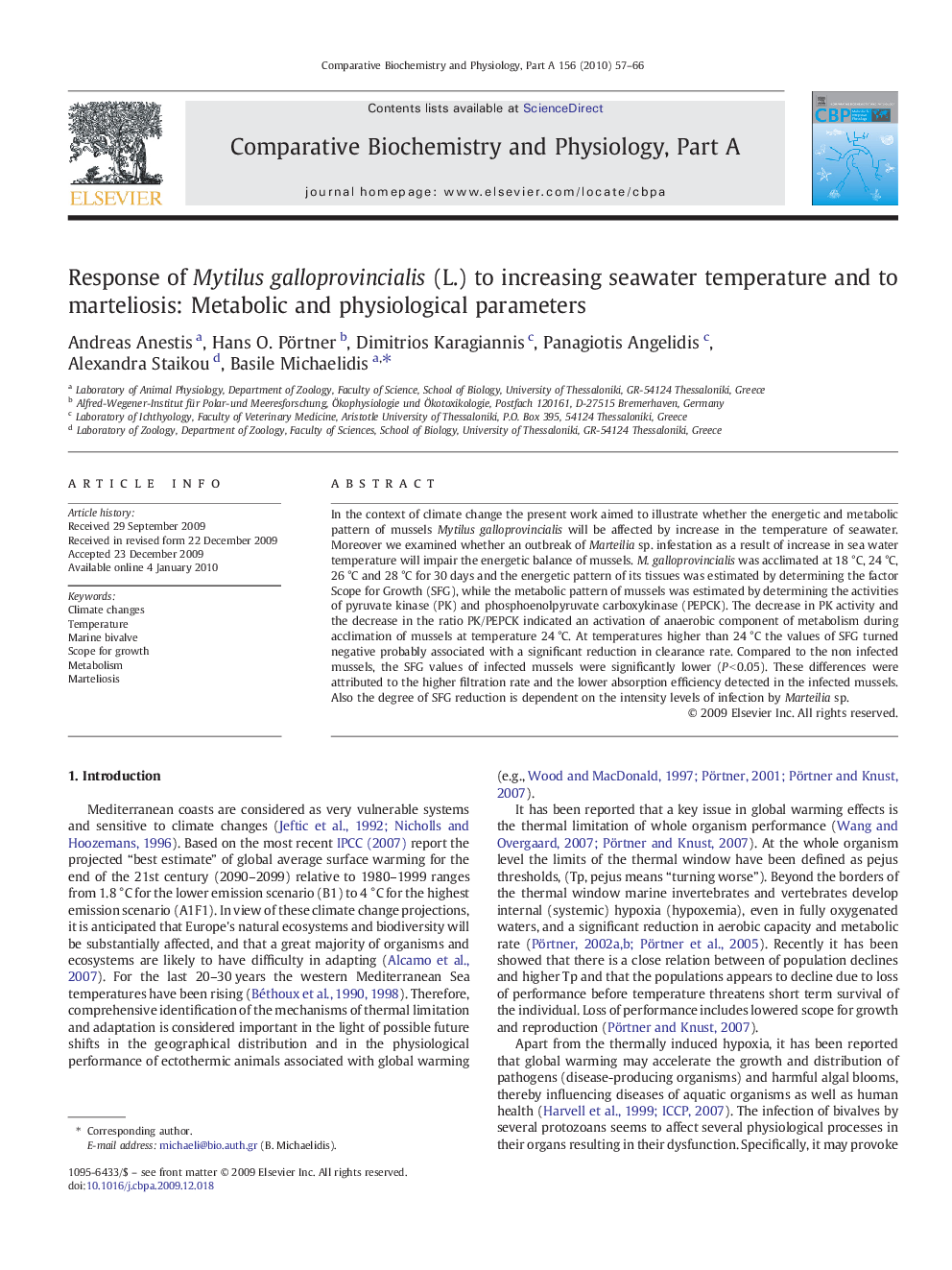| Article ID | Journal | Published Year | Pages | File Type |
|---|---|---|---|---|
| 1972704 | Comparative Biochemistry and Physiology Part A: Molecular & Integrative Physiology | 2010 | 10 Pages |
In the context of climate change the present work aimed to illustrate whether the energetic and metabolic pattern of mussels Mytilus galloprovincialis will be affected by increase in the temperature of seawater. Moreover we examined whether an outbreak of Marteilia sp. infestation as a result of increase in sea water temperature will impair the energetic balance of mussels. M. galloprovincialis was acclimated at 18 °C, 24 °C, 26 °C and 28 °C for 30 days and the energetic pattern of its tissues was estimated by determining the factor Scope for Growth (SFG), while the metabolic pattern of mussels was estimated by determining the activities of pyruvate kinase (PK) and phosphoenolpyruvate carboxykinase (PEPCK). The decrease in PK activity and the decrease in the ratio PK/PEPCK indicated an activation of anaerobic component of metabolism during acclimation of mussels at temperature 24 °C. Αt temperatures higher than 24 °C the values of SFG turned negative probably associated with a significant reduction in clearance rate. Compared to the non infected mussels, the SFG values of infected mussels were significantly lower (P < 0.05). These differences were attributed to the higher filtration rate and the lower absorption efficiency detected in the infected mussels. Also the degree of SFG reduction is dependent on the intensity levels of infection by Marteilia sp.
